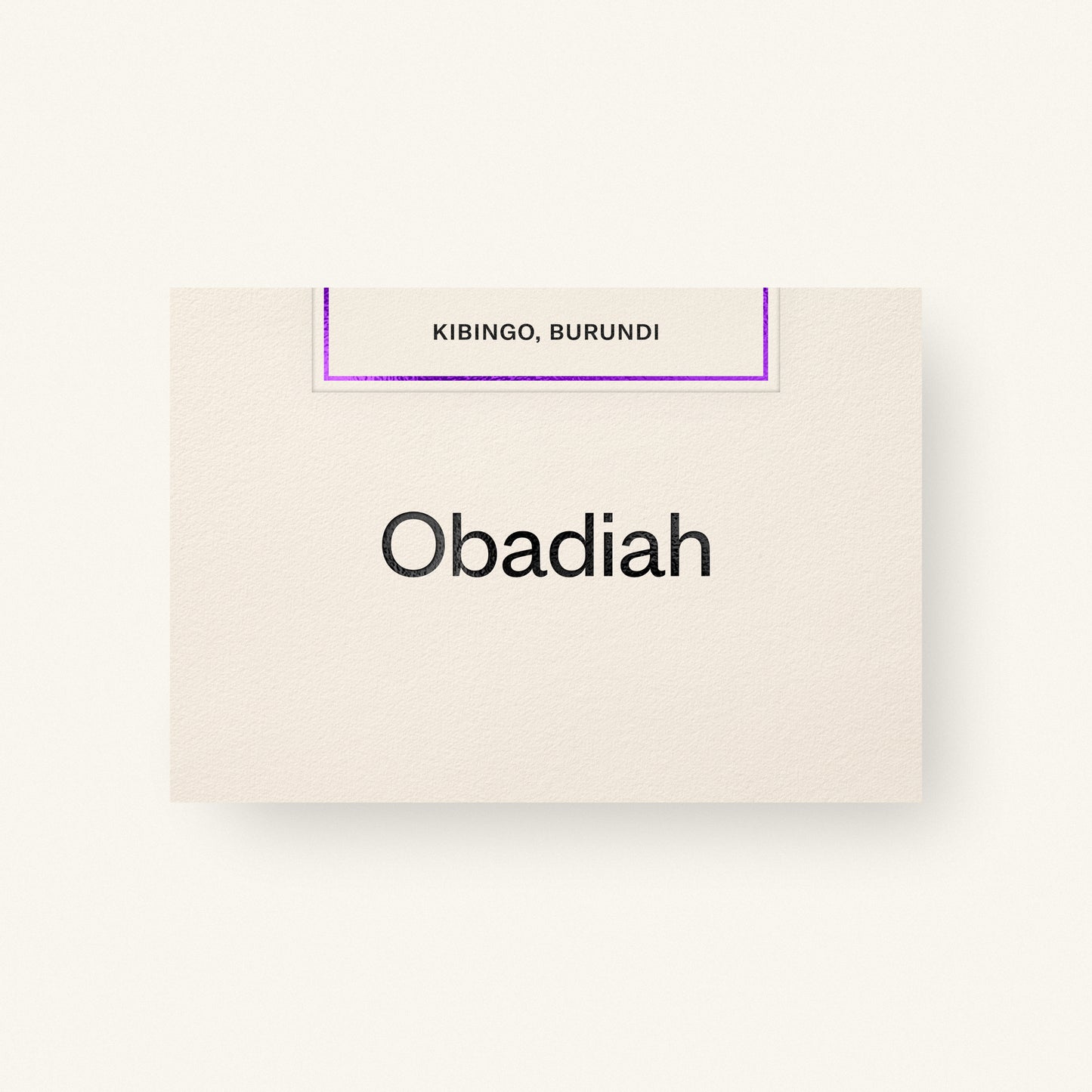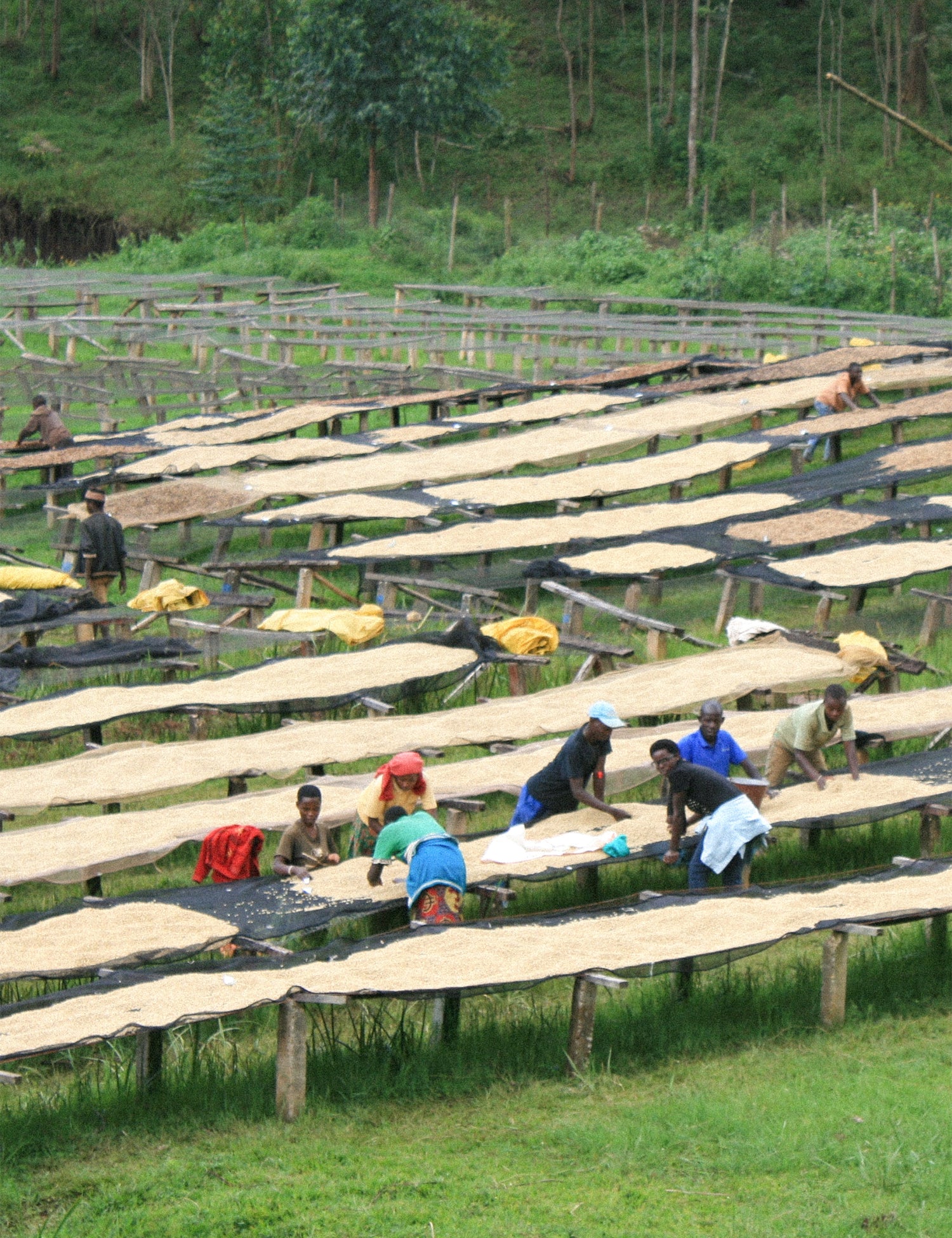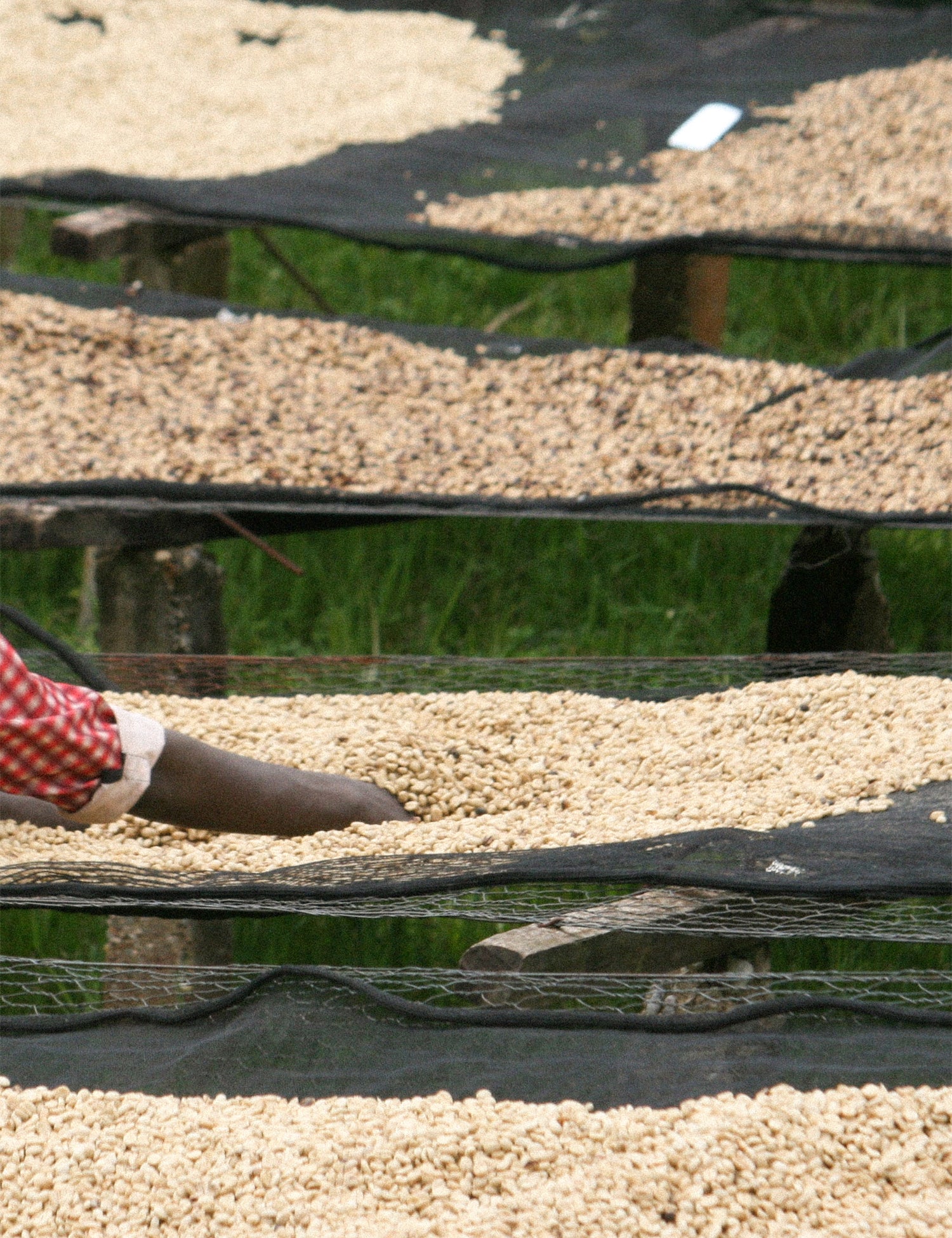Kibingo
Kibingo
One of our seasonal highlights, a fine example of small-scale farming crafting remarkable flavour: soft with dried fruit richness.
Regular price
£15.00
Regular price
Sale price
£15.00
Unit price
per
Couldn't load pickup availability
Character
Character
We taste raisins and sweet biscuit.
Brewing
Brewing
Recommended for espresso and filter.
Resting
Resting
We recommend resting our coffee inside its sealed bag for a minimum of 21 days to enjoy the best results.


Innovative processing in Burundi.

The Producer

